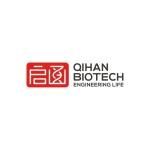In a leap forward for immune privileged cell and organ therapy, researchers create first clinical xenotransplantation prototype with enhanced human immune compatibility and without active porcine endogenous retrovirus (PERV)
Results published in Nature Biomedical Engineering demonstrate potential of Qihan�s genome editing platform to create novel human cell and organ therapies
HANGZHOU, China–(BUSINESS WIRE)–Qihan Biotech, a leader in applying multiplexable genome-editing technology to cell therapies and organ transplantation, today published research reporting the successful production of its first clinical xenotransplantation prototype, known as ‘Pig 3.0’. The results, which were published today in Nature Biomedical Engineering, show enhanced immunocompatibility of xenogeneic organs and full eradication of porcine endogenous retroviruses (PERV).
The successful development of Pig 3.0 represents an important step towards the realization of safe and effective xenotransplantation and a potential solution to the worldwide shortage of human organ donors. The study also demonstrates how Qihan�s high-throughput multiplexable genome editing platform can be used to engineer novel biological functions, with a range of potential applications in immuno-oncology cell therapy and regenerative medicine.
Qihan Biotech is committed to developing novel cell and organ therapies which can be available to patients worldwide. The company focuses on developing and delivering immune privileged human allogeneic cell therapy products and xenogeneic organ products. Currently, the clinical applicability of allogeneic cell therapies and organ xenotransplantation is limited by molecular incompatibilities between the transplant and the recipient. In the case of pig organs for xenotransplantation, there is the additional risk of transmission of PERVs, which have the potential to infect human cells. The reported work represents a valuable step to overcoming both of these limitations.
In the Nature Biomedical Engineering study, researchers at Qihan, led by company co-founders Luhan Yang and George Church, used a combination of CRISPR-Cas9 and transposon technologies to generate pigs with 13 independent genetic modifications including ones to enhance the pigs� immunological and blood-coagulation compatibility with humans and PERV eradications. The engineered pigs exhibited normal physiology, fertility and germline transmission.
�This is the first clinical xenotransplantation prototype to report on pig production with no active PERVs and enhanced compatibility with the human immune system,� said Luhan Yang, Ph.D., Chief Executive Officer of Qihan Biotech. �The publication of this work represents an important step forward in Qihan�s development of novel cell and organ therapies that provide safe and effective solutions for patients. We are encouraged by the results and are now testing the organ function and safety in primate preclinical studies.�
�The successful production of �Pig 3.0� and the publication of that work demonstrates critical progress toward what could be a truly transformational option for millions of patients,� said James F. Markmann, Chief of the Division of Transplant Surgery and Director of Clinical Operations at Massachusetts General Hospital and a co-author on the study.
�The results from this work underscore the promise of multiplexable genome editing. The approach, if validated through further studies, could help solve global organ shortage, alleviate transplantation needs and enable the development of novel immune cell therapies, including therapies for so-called immune privileged areas of the body,� said study author George Church, Professor of Genetics at Harvard Medical School, Co-founder of Qihan and Co-chair of Qihan�s Scientific Advisory Board.
About Qihan Biotech
Qihan Biotech is a biotechnology company applying genome-editing technology to develop novel cell therapies and organs for transplantation. The company�s mission is to use high-throughput, multiplexable genome editing in combination with expertise in transplantation immunology to create immunologically privileged allogeneic cells and xenogeneic organs for use as therapies to treat cancer, organ failure and other important medical conditions. With a vision to create a world in which cell and organ therapies are universally available to patients, Qihan Biotech has raised two rounds of financing and is advancing its cell therapy programs into IND enabling investigations. Qihan Biotech is headquartered in Hangzhou, China. For more information, please visit www.qihanbio.com.
About Qihan�s High-Throughput, Multiplexable Genome Editing Platform
Qihan is pioneering a new generation of gene-editing technology. Using a combination of CRISPR-Cas9 and transposon technologies, Qihan is building a technology platform that has already demonstrated record-breaking multiplexable gene knock-outs and knock-ins within cells and living organisms.
About Qihan�s Immune Privileged Technology Platform
Qihan Biotech�s �immune privileged� cell and organ platform, stemming from its deep understanding of transplantation immunology, enables the company to produce next-generation cells and organs that can evade attack by the cell or organ transplant recipient�s immune system. Qihan strives to engineer human cells and tissues for a variety of allogeneic applications, including immune cells for immuno-oncology as well as other functional cells, such as cardiomyocytes, neurons and islet cells for regenerative medicine. Qihan is also a pioneer in engineering extensively genome-modified pigs as bioreactors to �grow� xenogeneic cells, tissues and organs for safe and effective clinical applications.
Contacts
Qihan Biotech Public Relations
Tel: 0571-83500380
Fax: 0571-83500370
[email protected]
U.S. Media:
Gwen Schanker
Ten Bridge Communications
(269)-921-3607
[email protected]







